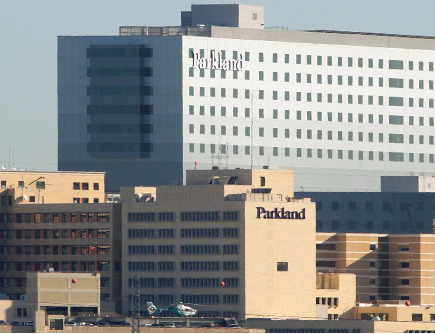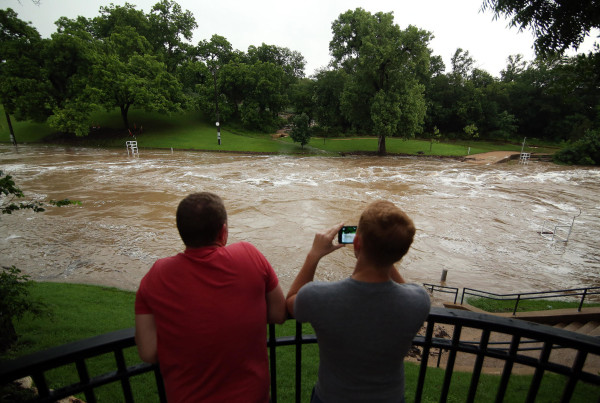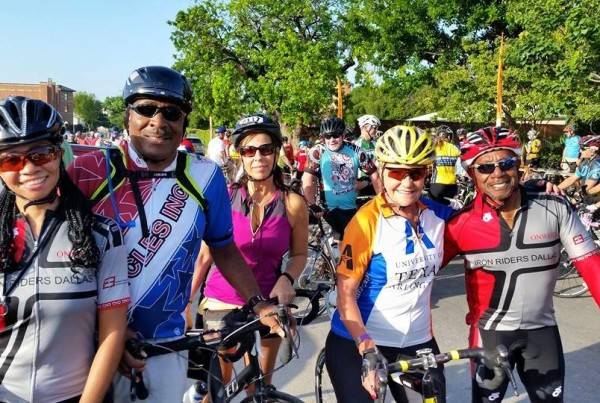This story originally appeared on KERA News.
A few years ago, when State Rep. Drew Springer went to visit a Deputy Sheriff at Texas Health’s Harris Methodist Hospital in Fort Worth, he had to leave his gun in the car.
“I go up and see the deputy and then I come back,” he said. “I spend the next 10 minutes walking in a dark parking lot to get to my car in downtown Fort Worth and I absolutely did not feel safe.”
Springer says it makes no sense that he can take his gun into the Capitol building but has to leave it in the glove compartment before walking into the ER.
So last spring the Republican representative proposed a bill to eliminate most gun-free zones in the state. His district stretches over several counties between Amarillo and Dallas-Fort Worth and it includes more than a dozen hospitals.
“I’ve had both employees as well as visitors of their loved ones that have said we’re right here on the interstate, there’s a big sign that says hospital and people are coming off and trying to rob them of their drugs,” Springer says. “They feel vulnerable and they want the right to be able to protect themselves.”
The View From Parkland Hospital
Dallas County Hospital District Police Captain Dan Birbeck says he understands Springer’s mission for self-defense, but disagrees with the idea of guns on hospital grounds.
“I’m a Second Amendment supporter,” Birbeck says. “However, I think there needs to be some commons sense built into this as well.”
Birbeck is responsible for the team that responds to emergencies in Dallas County Hospital District. He says Parkland, like many major hospitals, treat a large number of psychiatric patients who may be in danger of hurting themselves or others.
“Even though that person may have the right to defend themselves, they don’t have the right to put others in danger,” he says.
Which is exactly what happened a few years ago when Parkland was treating a prisoner. The felon overpowered a deputy sheriff and took his firearm.
After a large manhunt, a SWAT team eventually took the prisoner into custody.
More recently, in January, a shooting at a Veterans Affairs clinic in El Paso left a psychologist and the gunman dead. In April, a father visiting his son at a hospital in Harris County pulled a gun on a nurse. In that incident, no one was hurt.
Still, these cases bring up safety concerns for staff and visitors.
In fact, new research released by the Occupational Safety and Health Administration confirmed that staff working in hospitals experience much higher rates of workplace violence than all other workers.
The solution, says Steve Love with the Dallas-Fort Worth Hospital Council, is not more weapons.
“All people I know within the hospital community clearly want gun-free zones in their hospitals,” Love says. “We have enough problems with security as it is, to add guns to the mix just makes it more complicated.”
Training For Violence
Hospitals across North Texas train for active shooter incidents. In 2014, the DFW Hospital Council sponsored a workplace violence educational session. Texas Health Resources hospitals recently presented an online training program to employees on how to respond to an active shooter situation in the workplace.
Police Captain Dan Birbeck says Parkland’s chief of police, Kenneth J. Cheatle, has been instrumental in training Parkland staff, as well as police and security working at hospitals across the country in how to handle active shooter scenarios.
“If we were to have somebody enter the hospital with a gun, we have non-ambulatory patients that can’t defend themselves,” Birbeck says. “We have patients that are ill and unable to defend themselves. So we try to prepare for that event so we can protect as many of our patient population as possible.”
Springer, the lawmaker, says he’s willing to negotiate the details of guns in hospitals. But he doesn’t plan to drop the issue.















